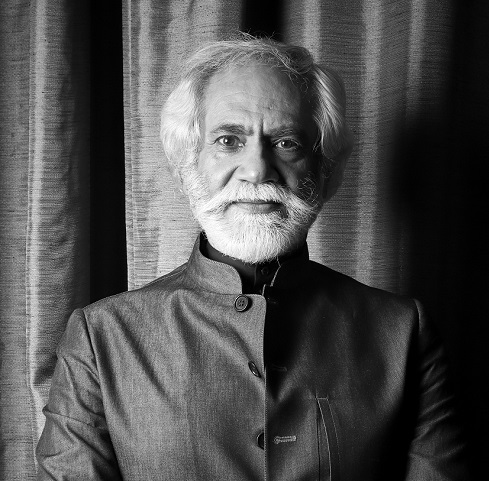Fashion Design Council of India chairman Sunil Sethi, who is also the advisor of KVIC, talks about growing influence of Khadi among youth, how this fabric is inherently sustainable, and the digital fashion events offering respite to the fashion designers who have suffered at the hands of Covid-19.
Fashion Design Council of India (FDCI) chairman Sunil Sethi, who is also the advisor of Khadi and Village Industries Commission (KVIC), spoke to The Daily Guardian about enhancing the appeal of Khadi among millennials, how this fabric is inherently sustainable and the digital fashion events offering respite to the fashion designers who have suffered at the hands of the coronavirus pandemic.
Sethi will advise the Commission on latest design interventions in the readymade garments segment as well as the promotion of Khadi in India and abroad. Elaborating on it, he says, “FDCI has closely worked with KVIC over the years. They have witnessed firsthand what we have done for the freedom fabric and that includes roping in many celebrities and designers. This is the key reason that I have been offered this role. In all these years, our effort has been to make it aspirational for the elite. Being the advisor of the Commission, I would like to accomplish what we have not done so far and that is to focus more on the fashion-conscious millennials. I want to percolate down from the top designers and give opportunities to other promising designers as well.”
He continues, “Now that I have access to all kinds of Khadi fabrics and many cooperative societies we can help both the designers and the cooperative societies by buying fabric from them. FDCI has the strength of over 400 designers and it will help to further popularise khadi amongst millennials. Also, there is a patriotic feeling involved when a designer works on a Khadi range. The Indian fashion designers and textile designers will easily be able to help to enhance the appeal of khadi among youngsters and we would be able to reach from to where we are to where we wish to go. “
It’s a little known fact that Sethi was a buyer for the designers for three decades before he became the chairman of FDCI in 2008. He recalls, “I used to come to India as a buyer and place orders on behalf of international stores and get the international buyers myself. I have only worked with international stores, designers and buyers for 30 years of my life. Interestingly, we were selling Khadi shirts by designers Rohit Bal and Rajesh Pratap back in 2000. If I was able to sell Khadi products 20 years ago when I did not know much about this fabric and my job was not to promote it then, with all this experience at hand I am better equipped to take the Khadi wave forward.” He also informed us that FDCI and KVIC were invited to do a special show in Bhutan. Sethi and KVIC chairman Vinai Kumar Saxena went to Bhutan and showcased khadi creations in coordination with Embassy of India in Bhutan. The show was a success so much so that the Indian Khadi drew the interest of the royal family of Bhutan. Sethi emphasises, “In some ways, we have begun our journey but now would be initiating the business of fashion in Khadi.”
He believes that sustainability has now become a buzz word but Khadi existed much before words like sustainability and atmanirbhar were coined. “Khadi ticks all the boxes of sustainability including usage of less water, the breathability factor and it›s handmade.
Digital fashion events and pre-recorded fashion shows are an after-effect of Covid-19 and present a platform to the fashion designers. Talking about it, Sethi says, “the idea of a digital fashion week was born out of the need as a physical fashion event was not possible due to the pandemic. India Couture Week 2020 was the first digital fashion week of India. Paris and New York explored this format before India but we are adapting to the changing times and are not mere spectators to the change. Post-Covid, I believe nothing can take the place of physical fashion shows but the digital imprint is so strong that physical events might not hold the same value. Also with digital events, people have tasted blood and understood its power so there will be a mix of both these formats going forward.” Digital fashion events like India Couture Week and Lotus Makeup India Fashion Week have given a much-needed boost to the fashion designers in these testing times.
Asked about the impact of the coronavirus pandemic on the fashion industry, Sethi answers, “the fashion industry is suffering on many levels such as manufacturing, retail, lesser freedom to move around, difficulty in getting karigars and working on reduced manpower in factories amid the Covid-19 fear. The popular notion is that the fashion industry makes a lot of money, sells expensive clothes and have big margins so the pandemic hasn›t affected them. Contrary to it, fashion designers don›t have the kind of savings which regular a businessman has since they keep investing in talent, research and hefty rents and if there is no customer they suffer the most.”

